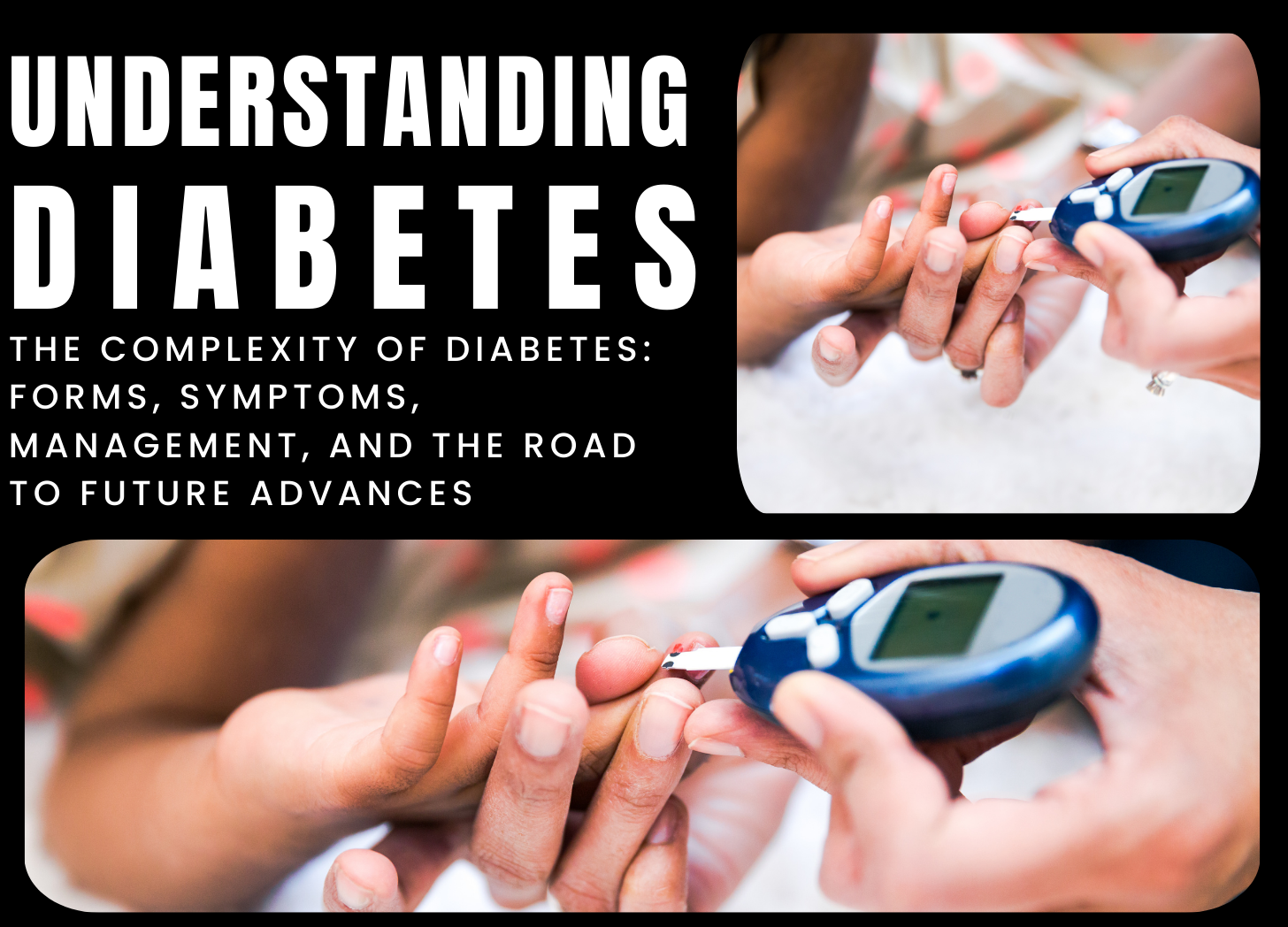Contact Us
Contact Us

Diabetes is a common metabolic illness that affects millions of people worldwide. This chronic ailment necessitates a thorough investigation into its forms, symptoms, causes, accessible therapies, and critical management measures for persons dealing with this complex health challenge.
Diabetes is a set of disorders defined by high blood sugar levels (hyperglycemia) caused by inadequate insulin synthesis or inefficient insulin utilization by the body. Insulin, a pancreatic hormone, regulates blood sugar levels and promotes glucose uptake by cells for energy.
Diabetes is classified into numerous categories, including Type 1, Type 2, gestational diabetes, and others. Type 1 diabetes is caused by an autoimmune reaction that destroys insulin-producing cells in the pancreas. Type 2 diabetes is caused by a mix of hereditary and environmental factors, which results in insulin resistance and reduced insulin production.
Diabetes symptoms include excessive thirst, frequent urination, unexplained weight loss, lethargy, and blurred eyesight. Long-term effects can include cardiovascular problems, nerve damage, kidney damage, eye impairment, and foot problems, emphasizing the significance of proper diabetes control.
Diabetes is diagnosed by blood tests that detect blood sugar levels. Management strategies seek to keep blood sugar levels within a goal range, which may include lifestyle changes such as a nutritious diet, regular exercise, and weight control. Diabetes management also includes medications, insulin therapy, and regular monitoring.
Adopting a healthy lifestyle, such as a balanced diet, frequent physical activity, maintaining a healthy weight, and avoiding tobacco use, can help prevent or delay the onset of Type 2 diabetes. Controlling blood sugar levels effectively can considerably lower the risk of diabetes complications.
Ongoing research efforts are aimed at better understanding diabetes, discovering novel treatments, enhancing diagnostic tools, and investigating techniques for preventing or delaying the start of the disease. Technological advancements and medicinal interventions provide promise for more effective management and even remedies in the future.
Diabetes is a severe health concern that necessitates a holistic strategy that includes education, effective management, and lifestyle changes. Understanding the different forms, symptoms, causes, and therapies available is critical for managing this chronic condition and avoiding consequences.
References:
American Diabetes Association. “Types of Diabetes.” www.diabetes.org/diabetes/type-1.
Centers for Disease Control and Prevention. “Diabetes Basics.” www.cdc.gov/diabetes/basics/index.html.
International Diabetes Federation. “About Diabetes.” www.idf.org/aboutdiabetes/what-is-diabetes.html.
American Association of Diabetes Educators. “Diabetes Education Resources.” www.diabeteseducator.org/living-with-diabetes.
Post a Comment